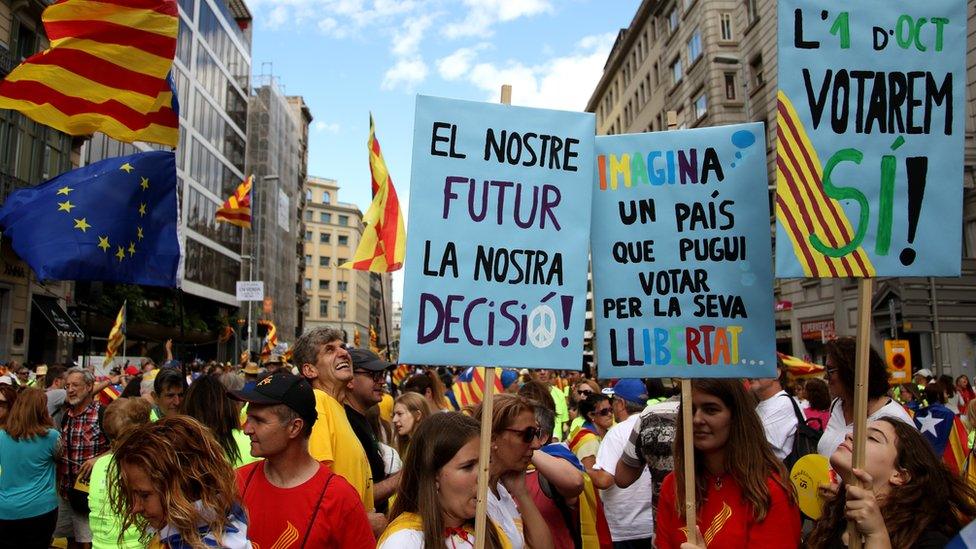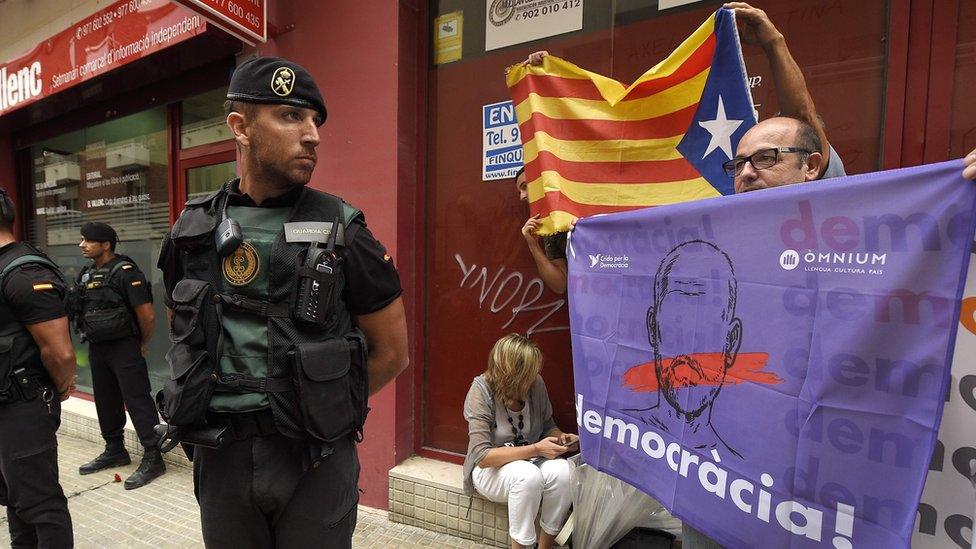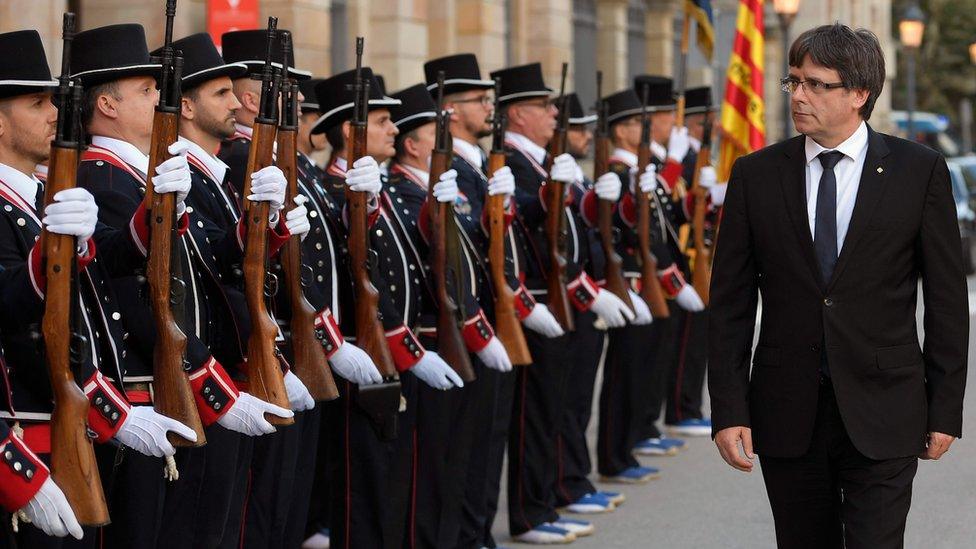Spain plays cat and mouse as Catalan vote looms
- Published

Madrid and Catalonia are on a collision course over independence
The Spanish government is intent on defeating Catalonia's plans to hold an independence referendum, but it wants to avoid heavy-handed methods.
The 1 October ballot has been suspended by the constitutional court in Madrid while judges consider its legality.
While ruling out the use of the military and imposing direct rule from Madrid over the autonomous region (possible under the constitution), Spain's government is doing all it can behind the scenes to prevent the ballot boxes from being put out for Catalans to vote.
It's a game of cat and mouse.
While the Civil Guard police force searches printworks for the ballot papers, the Catalan government has said it has 6,000 ballot boxes secretly stashed away - despite Spanish courts having banned the purchase of electoral equipment.
Catalonia's collision course with Madrid
Court blocks independence referendum
What could Barcelona attacks mean for Catalan independence?
On Wednesday night a judge in Barcelona gave the police authorisation to shut down the Referendum.cat website, created by the government to encourage people to vote on 1 October.
The response from Catalan leader Carles Puigdemont was to immediately post the link to a mirror site on his Twitter feed, and activists were encouraged to copy the code of the original site and mushroom the webpage.

The Guardia Civil searched El Vallenc newspaper offices for suspected banned ballot papers
Spain's attorney general has asked prosecutors in Catalonia to interrogate all mayors whose name is the on the list of more than 700 who have signed up to participate in the referendum.
Those mayors who respond voluntarily to the summons should be arrested, the government-appointed attorney general said.
Catalonia's top court has called in local police chiefs to remind them that their duty is to report any crime they see being committed and to seize items being used for the purpose of the vote, specifically ballot boxes.
The newspaper El Mundo reported that the government may ask the courts to order that electricity be cut at polling stations if all else fails in the bid to thwart the vote.
Thousands march in Barcelona in support of an independence referendum
Caught in the middle
The meat in the sandwich of this clash of political wills is likely to be public servants.
The Catalan government has told all local councils that polling stations must be made available and opened on 1 October. This requires state workers to accept the regional law - while being threatened with charges of disobedience from Madrid.
Catalonia's authorities will also proceed with the drawing of names at random for the citizens required to oversee the ballot, similar to the system used in some countries for jury service.
Spanish Prime Minister Mariano Rajoy has directly appealed to citizens not to respond to the summons for electoral officers, pointing out that they would be participating in an "illegal" ballot.
One of Spain's largest labour unions, CCOO, has asked the Catalan authorities to "offer guarantees that headteachers will not be held legally responsible" for ballots held in the region's schools.

Will the Mossos d'Esquadra be loyal to Catalan leader Carles Puigdemont or Madrid?
And crucially, perhaps, the police and security forces will be expected by one side to keep the peace as the vote goes ahead, while the other may demand that they prevent it from taking place at all.
The loyalty towards Spanish courts of the national police and Civil Guard forces is unquestionable. But the role that will be played by the Catalan regional police force, the Mossos d'Esquadra, is less clear, especially if activists turn out in force to obstruct state orders to close polling stations, as some pro-independence parties have urged.
Union representatives of the Mossos, Catalonia's most numerous police force, are divided. The spokesman for the SME Mossos union accepts that the force is "at the orders of judges and prosecutors".
But Francesc Vidal, president of the Mossos' Uspac union, said his members were at the centre of a "train collision" with Spanish legal authorities bearing down on the police force's employers, the Catalan government.
"Security has to be our priority. There are more important and serious things to do than investigate ballot boxes," Mr Vidal said, apparently siding with the Catalan government.